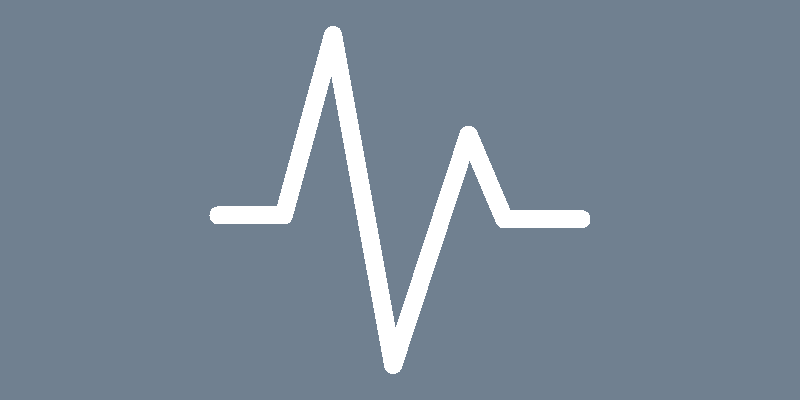Pioneering the Future of Medicine
The integration of Artificial Intelligence (AI) in healthcare marks a groundbreaking revolution, propelling the industry into a new era of precision medicine and patient care. By harnessing the power of AI, healthcare professionals can unlock deeper insights from medical data, expedite diagnoses, and accelerate drug discovery. This transformative technology holds the potential to reshape the healthcare landscape, enhancing patient outcomes and revolutionizing medical practices. In this article, we will explore the remarkable applications of AI in healthcare, focusing on medical image analysis, disease diagnosis and prediction, and drug discovery.
Redefining Diagnostics with AI
Medical imaging plays a pivotal role in diagnostics, providing critical information to aid in disease detection and treatment planning. AI-driven medical image analysis has revolutionized the interpretation of radiological images, such as X-rays, computed tomography (CT) scans, magnetic resonance imaging (MRI), and histopathological slides. Here’s how this technology is transforming medical image analysis:
- Image Segmentation: AI algorithms can accurately segment and identify regions of interest within medical images. This enables radiologists to focus on specific areas for diagnosis, leading to more precise and efficient evaluations
- Anomaly Detection: AI-powered medical image analysis algorithms can identify subtle anomalies and abnormalities that might be challenging to detect with the human eye. This early detection aids in diagnosing diseases at their nascent stages, significantly improving patient outcomes
- Quantitative Analysis: AI allows for quantitative analysis of medical images, providing precise measurements of tumors, lesions, and other structures. This quantification aids in treatment planning, monitoring disease progression, and evaluating the effectiveness of interventions
- Integration in Imaging Devices: AI integration in imaging devices is advancing real-time diagnostics. Algorithms embedded within imaging equipment can provide immediate insights to radiologists during image acquisition, expediting critical decision-making
Disease Diagnosis and Prediction
AI is revolutionizing disease diagnosis and prediction by leveraging machine learning algorithms to analyze vast amounts of patient data, including medical history, genetic information, lifestyle factors, and environmental influences. Here’s how this technology is empowering predictive medicine:
- Early Disease Detection: AI can analyze patterns within large datasets to identify potential risk factors and detect diseases at initial stages. This early detection enables healthcare professionals to intervene proactively, leading to improved treatment outcomes and cost-effective healthcare management
- Personalized Treatment Plans: AI-driven models consider individual patient characteristics and genetic variations to design personalized treatment plans. This targeted approach ensures that treatments are tailored to each patient’s unique needs, maximizing treatment efficacy, and minimizing adverse effects
- Predictive Analytics: Algorithms analyze patient data to predict disease progression and potential complications. Predictive analytics helps healthcare providers anticipate patient needs and plan interventions accordingly, optimizing patient care
- Drug Sensitivity and Response Prediction: AI is transforming the drug development process by predicting individual patient responses to specific medications. By analyzing genetic data and treatment outcomes, it can identify patients who are likely to respond positively to a particular drug, guiding personalized treatment choices
Accelerating Innovations in Pharmaceutical Research
The traditional drug discovery process is time-consuming and expensive. AI is revolutionizing pharmaceutical research, accelerating drug discovery, and streamlining drug development. Here’s how this technology is transforming the drug discovery landscape:
- Target Identification: AI-powered algorithms analyze vast datasets to identify potential drug targets based on disease mechanisms and genetic factors. This targeted approach expedites the identification of promising drug candidates
- Virtual Screening: AI can perform virtual screening of compounds to identify potential therapeutic agents. By simulating interactions between drug molecules and disease targets, it narrows down the search for potential drug candidates, reducing the time and cost of screening
- Drug Design and Optimization: AI-driven computational models can design and optimize drug molecules for enhanced efficacy and reduced side effects. This iterative process of drug design expedites the identification of safe and effective drug candidates
- Drug Repurposing: AI analyzes existing drug databases and identifies potential new uses for approved drugs. This approach, known as drug repurposing, can fast-track drug development by skipping early-stage safety trials
A Brighter Healthcare Future
As we conclude our discussion of AI in healthcare, we can see its transformative potential to revolutionize patient care, diagnostics, and drug discovery. From the remarkable advancements in medical image analysis to the power of predictive analytics in disease diagnosis and the accelerated innovations in pharmaceutical research, AI is paving the way for a brighter future in healthcare.
AI-driven healthcare is not about replacing healthcare professionals; rather, it empowers them with augmented intelligence and data-driven insights, leading to more informed decision-making and personalized patient care. Embracing this technology in healthcare means unlocking the potential for earlier disease detection, more accurate diagnoses, and innovative treatments tailored to individual needs.
As this technology continues to evolve, the healthcare industry stands at the forefront of technological advancements, ushering in a new era of transformative medicine. Embrace the dynamic synergy between AI and healthcare, and let this unparalleled partnership pave the way for a healthier, more connected world, where patient outcomes and quality of life are elevated to new heights.
